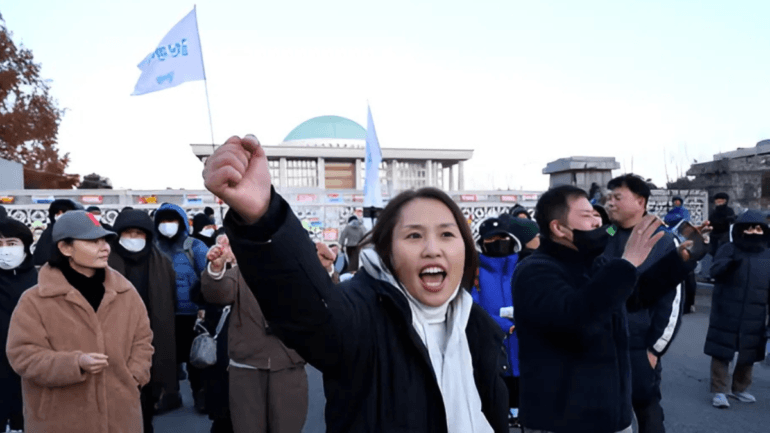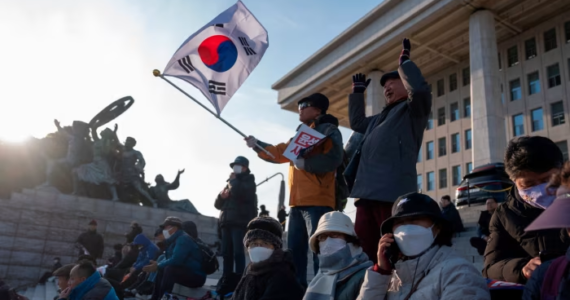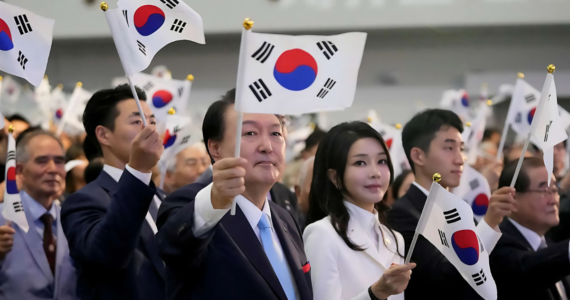South Korea is currently experiencing a significant political crisis that has disrupted its governance and raised concerns both domestically and internationally.
Background of the Crisis
The turmoil began on December 3, 2024, when President Yoon Suk Yeol declared martial law, citing threats from “anti-state” forces allegedly sympathetic to North Korea. This unprecedented move in South Korea’s democratic era was met with immediate backlash. The National Assembly swiftly convened and overturned the declaration within hours, deeming it unconstitutional.
Following this, on December 14, the National Assembly impeached President Yoon, citing his martial law declaration and various corruption scandals, including allegations involving the First Lady. The Constitutional Court now has up to 180 days to deliberate on the impeachment.
In the interim, Prime Minister Han Duck-soo assumed the role of acting president. However, on December 27, he too was impeached after blocking the appointment of Constitutional Court judges, a move perceived as hindering the impeachment process. Finance Minister Choi Sang-mok has since taken over as acting president.
Implications of the Crisis
This political instability has had immediate economic repercussions. The South Korean won has plummeted to its lowest level against the dollar since the 2008 financial crisis. The stock market has experienced significant volatility. Investor confidence is waning, raising concerns about the country’s economic stability.
Internationally, allies such as the United States are closely monitoring the situation. While the U.S. has stated that the readiness of its 28,500 troops stationed in South Korea remains unaffected, there are concerns about the broader implications for regional security, especially given North Korea’s recent military activities.
What Lies Ahead for South Korea
The immediate future hinges on the Constitutional Court’s decision regarding President Yoon’s impeachment. With only six of the nine judges currently appointed, and a requirement for six affirmative votes to uphold the impeachment, the outcome is uncertain. The court’s ruling will determine whether Yoon is permanently removed from office or reinstated.
In the meantime, acting President Choi Sang-mok faces the daunting task of steering the country through this period of uncertainty. His immediate priorities include restoring political stability, reassuring international allies, and implementing measures to stabilize the economy. The government’s ability to address these challenges effectively will be crucial in determining South Korea’s resilience in the face of this crisis.
The situation remains fluid, and the coming months will be critical in shaping South Korea’s political and economic landscape. How do you think South Korea can navigate this crisis and restore stability? Let us know your thoughts in the comments below!
Follow MEFeater on Twitter, Instagram, Facebook, and Pinterest for more news and updates.









